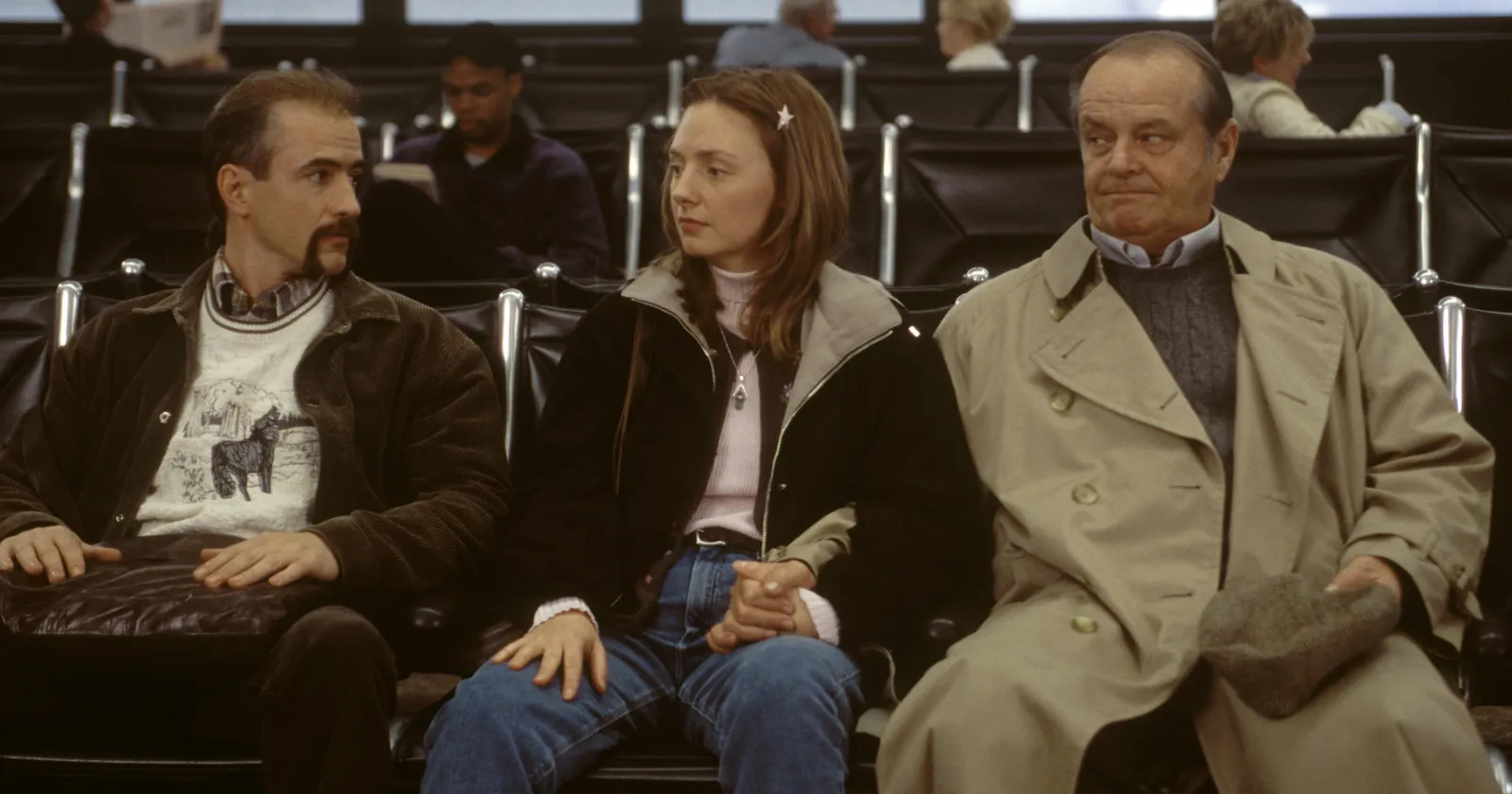About Schmidt (2002) is a good film, one that sits comfortably in Alexander Payne’s filmography but doesn’t quite reach the heights of his later classics. For fans of Payne’s more nuanced works, it’s an important piece, but it doesn’t carry the same emotional punch or cultural impact as his more well-known projects.

‘About Schmidt’ Movie Review
About Schmidt is a solid early entry in Alexander Payne’s career, but it’s a film that hints at what he would later refine in The Descendants nearly a decade later. Both movies explore themes of grief, self-discovery, and family, but where The Descendants truly comes together through its performances and setting, About Schmidt feels more like a sketch of the filmmaker’s future potential. Jack Nicholson delivers a fine performance as Warren Schmidt, a man who finds himself at a crossroads after the death of his wife. The film follows his journey as he navigates the emotional breakdown that ensues, all while confronting the burdens of living alone and figuring out what his future holds.
Nicholson’s portrayal of Warren is poignant, capturing the internal unraveling of a man who has spent his life coasting through routines without much self-reflection. It’s a performance that’s both tragic and darkly comedic, though it sometimes feels like Payne’s direction is holding Nicholson back from fully unleashing the intensity we know he’s capable of. It’s clear that Payne is more focused on the emotional arc than on making the character’s journey feel completely realized, especially compared to George Clooney’s more gripping turn in The Descendants. In that film, Payne places his protagonist in the lush, almost surreal backdrop of Hawaii, a stark contrast to the midwestern monotony of About Schmidt’s cross-country journey to attend his daughter’s wedding. This backdrop serves as a kind of mirror to Clooney’s emotional turmoil—something that never quite materializes here in the same way.
That said, About Schmidt still holds plenty of merit, particularly in its quieter, more introspective moments. Payne’s script is the film’s strongest suit, though it’s a softer, more subdued effort than his other works like Election or Sideways. The film never becomes overly sentimental, even as it tugs at your heartstrings. The pacing is deliberate, and the story focuses on the gradual unfolding of Schmidt’s self-awareness. His eventual speech at his daughter Jeannie’s (Hope Davis, The Daytrippers) wedding reception is a standout moment, one that blends both melancholy and humor. Dermot Mulroney (Scream 6, Anyone But You) also offers a strong supporting performance as Jeannie’s fiancé, a well-meaning but somewhat oblivious character who provides a nice foil to Schmidt’s unraveling.
While Payne would go on to make films that felt sharper and more layered—like The Holdovers and Nebraska—the foundations for those works are all present in About Schmidt. It’s not as biting as some of his later films, but it marks the point where Payne began to find his voice, balancing humor with poignancy in a way that would define his career. If Election is where Payne’s style started to take shape, About Schmidt feels like the first fully realized step toward the more intricate character studies that would follow.
READ MORE MOVIE REVIEWS: Adaptation, Signs, Panic Room
At the end of the day, About Schmidt is a good film, one that sits comfortably in Payne’s filmography but doesn’t quite reach the heights of his later classics. For fans of Payne’s more nuanced works, it’s an important piece, but it doesn’t carry the same emotional punch or cultural impact as his more well-known projects.
Score: 7/10
About Schmidt (2002)
- Cast: Jack Nicholson, Kathy Bates, Hope Davis, Dermot Mulroney, June Squibb
- Director: Alexander Payne
- Genre: Comedy, Drama
- Runtime: 125 minutes
- Rated: R
- Release Date: December 13, 2002
- Movies Like About Schmidt: The Royal Tenenbaums, Everything Everywhere All at Once, Magnolia, More Movies Like About Schmidt